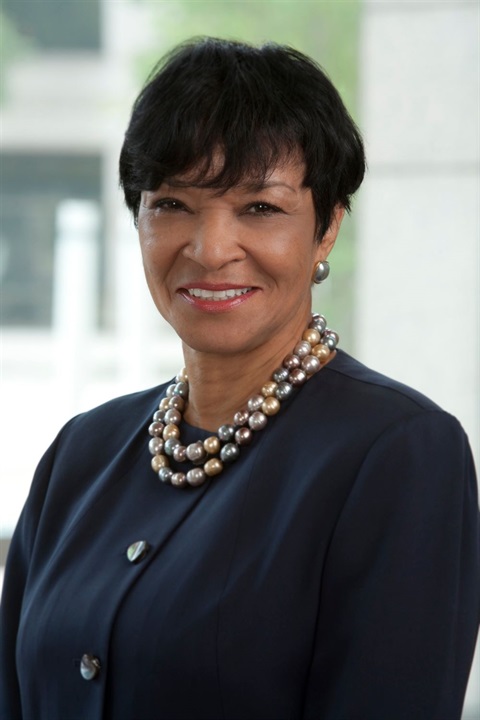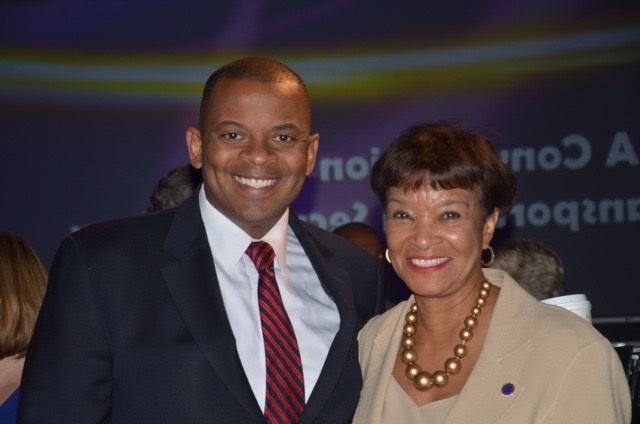Transit Pioneers: The Women Shaping Our Commutes
Published on March 05, 2024


by Brandon T Hunter
Communications Division
How CATS’ First Woman CEO, Carolyn Flowers, Broke New Ground in the Transit Industry
In the dynamic and evolving landscape of public transportation, few stories resonate as powerfully as that of Carolyn Flowers, the former CEO of the Charlotte Area Transit System (CATS). She is an example for aspiring leaders, especially women, in the transit industry. As we celebrate Women's History Month, we had a conversation with Flowers about her remarkable journey, and her career that not only shattered glass ceilings but also paved new pathways for diversity and inclusion within the transit sector.
Her professional career transitioned from the private sector to an impactful career in public transportation, beginning with the Los Angeles County Transportation Commission. In roles spanning from civil rights advocacy to budget management, her journey was characterized by resilience, adaptability and a sense of purpose. She rose through the ranks to become the first woman CEO of CATS. This was not just a personal triumph but a milestone for the community at large.
Reflecting on her groundbreaking role, she emphasizes the importance of seizing opportunities, recognizing one’s strengths and persistently overcoming barriers. Flowers shared empowering wisdom for women aspiring to make their mark in the transit industry or going for a leadership role.
"Take advantage of the opportunities... It's very important to build on your strengths and skills,” Flowers said. “I realized what my strengths were, and that's what I sold.”

The competitive landscape of her recruitment to CATS underscored the need to showcase unique capabilities over traditional qualifications, demonstrating that leadership in transit demands innovative thinking and strategic vision more than specific backgrounds.
Her tenure was marked by the challenge of navigating a traditionally male-dominated industry without a conventional transit background. Yet, her business background and dedication to understanding the operational frontline fostered respect and drove success.
"I never turned a wrench, nor drove a bus, but that didn't limit my ability to lead effectively,” Flowers said. “It was about proving value through understanding and supporting the team on the ground."
This statement underscores her belief that effective leadership transcends traditional skill sets, focusing instead on the ability to connect with, support and uplift those on the frontline of the industry.

The landscape for women in transit has evolved, from frontline and administrative roles to leadership positions leading large agencies. This shift reflects a broader industry and social progress toward recognizing and valuing diverse leadership. Her tenure at CATS and her contributions to national transit policy through roles in the Federal Transit Administration and private sector consulting further epitomize her commitment to advancing diversity, mentorship and sponsorship within the transit community.
"We all talk about DE&I programs,” Flowers said. “It's going to be very important that there's a continuing commitment to DE&I, especially as we're looking at the current political environment."
Flowers not only acknowledges the current discussions surrounding diversity and inclusion but also emphasizes the need for sustained commitment to ensuring these principles are at the forefront of industry practices.

Her achievements, including navigating budget challenges and fostering partnerships for CATS’ Blue Line Extension, embody her visionary leadership. Even so, her most profound legacy may be the emphasis on networking, mentorship and creating supportive environments for women and minorities in transit. Understanding the multifaceted nature of leadership, she underscores the necessity of surrounding oneself with a broad spectrum of perspectives and expertise.
"It's very important to have your own kitchen cabinet of advisors," Flowers said. “Make sure that group is diverse in terms of skills, industry knowledge and professionalism."
She advocates for sustained commitment to diversity and inclusion, emphasizing the need for continuous support beyond momentary rallying cries.
The journey ahead for enhancing diversity and inclusion in transit necessitates a multifaceted approach. It includes not only fostering a supportive culture but also creating pathways for future generations through education, apprenticeships and exposure to the vast career opportunities within the sector. The former CEO's story is a call for sustained commitment to these principles, ensuring that the transit industry remains vibrant, inclusive and innovative.

As we reflect on her contributions and insights, the narrative of the former CEO of CATS stands as a testament to the power of leadership that is both visionary and inclusive. Her story is not just a chapter in Women's History Month, but an example for future generations. Flowers’ legacy illuminates the path toward a more diverse, equitable and dynamic transit industry.
Learn more about DEIB at CATS in our chat with Nicole Harris.
Back to CATS Chronicles